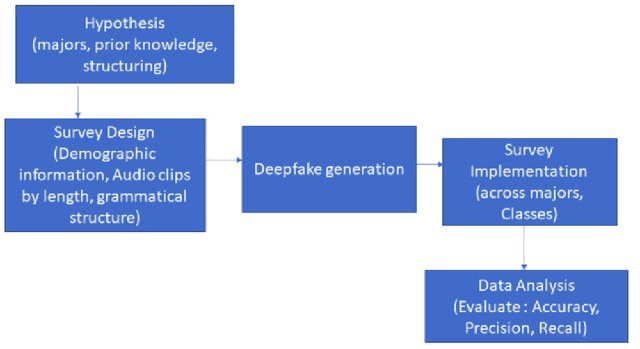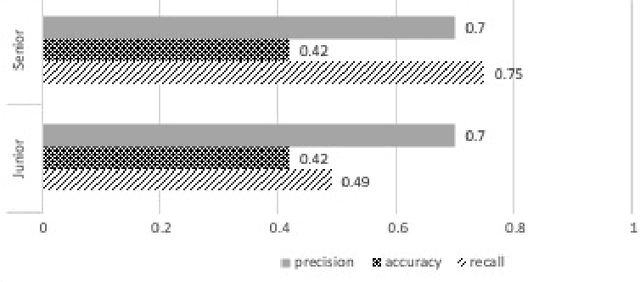Audio Deepfake Perceptions in College Going Populations
Paper and Code
Dec 06, 2021



Deepfake is content or material that is generated or manipulated using AI methods, to pass off as real. There are four different deepfake types: audio, video, image and text. In this research we focus on audio deepfakes and how people perceive it. There are several audio deepfake generation frameworks, but we chose MelGAN which is a non-autoregressive and fast audio deepfake generating framework, requiring fewer parameters. This study tries to assess audio deepfake perceptions among college students from different majors. This study also answers the question of how their background and major can affect their perception towards AI generated deepfakes. We also analyzed the results based on different aspects of: grade level, complexity of the grammar used in the audio clips, length of the audio clips, those who knew the term deepfakes and those who did not, as well as the political angle. It is interesting that the results show when an audio clip has a political connotation, it can affect what people think about whether it is real or fake, even if the content is fairly similar. This study also explores the question of how background and major can affect perception towards deepfakes.
 Add to Chrome
Add to Chrome Add to Firefox
Add to Firefox Add to Edge
Add to Edge